To open 2018’s appropriately titled Kamikaze, Eminem embraced the wrath he felt from a critic class that didn’t understand him, and a Hip Hop fan base who had lost appreciation for his legacy. “I feel like I wanna punch the world in the fuckin’ face right now,” he balks to preface a goosebumps inducing torrent of bars on “The Ringer.” Inadvertently, the critics and fans provoked from the rapper what they’d complained about missing on 2017’s Revival — they just had to piss him off enough first.
Jack Harlow hoped to create a similar dynamic with the follow up to his widely-panned sophomore effort Come Home The Kids Miss You. Critics and fans agreed Harlow’s big production budget was wasted on an album full of flippant rhymes about faceless women, ill-used samples, and empty marketing ploys. And so he returns a year later with what was clearly intended to be his rebuttal album; his Kamikaze. Unfortunately, despite referencing Eminem in a line promising to be the “hardest” white rapper since Slim Shady, Harlow fails to land any significant strikes on Jackman.
it’s clear Harlow heard the critique of last year’s effort and attempted to address each and every point used against him. People said he delivered a bloated album that relied too much on his mentor Drake and big flashy samples? No problem, now Harlow drops off a featureless, stripped down LP of 10 cuts featuring soulful loops and boom bap production to prove he’s a “real” artist. Critics said his lyrics weren’t substantial enough? This time he pens conceptual tracks tackling challenging topics like holding friends accountable for sexual violence, white privilege, and cultural appropriation. The effort to improve was there.
And yet, with no blockbuster features or nostalgic pop interpolations to distract, Harlow is reliant on his streaky rapping, weak pen, and uneven singing chops. The result is 24 minutes of a one-time suburban kid defending himself against other suburban kids, and it’s not easy on the ears.
Lyrically, Jackman. is Harlow at his worst. There’s none of the self-assured charm from previous work like he exhibited during his feature on Lil Nas X’s Grammy-nominated “INDUSTRY BABY.” Left in its place — mush and insecurity. Lowlights include: “Scuffed up kicks, Old Navy my apparel/ And I’m cumming in my girl like I’m sterile,” from “Ambitious”; and “It can’t be some understanding of branding/ Or maybe that I’m outstanding” from the noxious “It Can’t Be.”
In terms of content, Jackman. sounds disjointed and dull. Opener “Common Ground” is a stern talking down about white-suburban kids co-opting Hip Hop culture, when Harlow is just as complicit, delivering the equivalent of “I’m one of the good ones.” Coming from an album that features comments on white kids using Ebonics, with track titles like “Is That Ight?” and “Gang Gang Gang,” it reads well-intentioned, but ultimately oblivious. In attempting to push back against the critiques of being vacuous and hollow on his last album, he’s blind to the irony of what he’s about. His social compass also seems wildly inconsistent. At the top of the record, Harlow appears to be calling out white privilege. But on the back end on “It Can’t Be” he bitterly resists the idea that white privilege has contributed to his success in any way. Again, Jack wants to convince you he’s “one of the good ones.”
Missing irony aside, there’s glimpses of Harlow’s bid for social commentary featuring some self awareness. For instance, “Gang Gang Gang” calls out men to hold their friends accountable for their abuse towards women, and “Blame On Me” touches on difficult family dynamics. If that sounds like a vague description it’s because Harlow’s verses are just so empty that none of the punches land: well-intentioned, but obvious critiques that ring hollow.
Eminem’s Kamikaze worked because he used Revival’s criticism to make a follow-up that was not just appreciated but widely recognized as some of his best work in years, accomplished by sounding true to Marshall Mathers’ identity as a punchline rapper who was known for using criticism to fuel his best work back in his prime. But that’s not Harlow. Sure, at one point he was the underdog playing shows to 15 fans in small makeshift dive bars in Kentucky, but now he’s the charismatic heartthrob set to star in movies. Popstar fits, backpack rapper doesn’t.
It’s not a total loss though. Harlow fixes one major problem from his last record by livening up the production. Soul samples chopped by Angel “Babe Truth” Lopez, Hollywood Cole, and DJ Dahi keep the project from becoming irredeemable. A groovy Coop The Troop and DJ Dahi beat on “No Enhancers” stands out, as does a sample from Toronto songwriter Gray Hawken as the connective tissue to “Blame On Me.” And clear highlight “Denver” features intimate acoustic guitar-driven production from FNZ and Angel “Babe Truth” Lopez, serving as a worthy foundation for Harlow’s best writing on the album, as he pulls back the curtain on dealing with how quickly his star has risen, and how his vulnerabilities can so easily be used against him now that he’s exposed to the world. It’s honest and thoughtful without sounding bitter or grating.
Alas, despite the attempts of introspection, there’s not enough to redeem this record. Jackman. is the album version of listening to the kid in class deliver a book report about a novel he didn’t read, but wants the class to think he’s an expert on. When Harlow isn’t being condescending, he’s contradicting something he said earlier in the album. None of that would be fatal if the project featured a few songs that were fun, insightful, or lived up to the emcees he aspires to be compared to.
So much for the “hardest white boy” since Eminem.
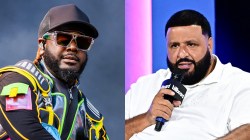
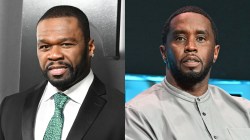
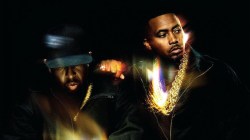

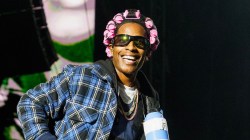


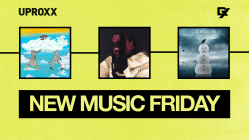


why mention eminem? are you stupid? eminem lost his legacy? eminem still big and outselling everbody without dropping an album. also, kamikaze is solid project. who the fuck is this hernandez?
eminem live rent-free in your head i swear, also, Jack Harlow should update his flow. album had content but his flow and delivery……… 6/10 to be fair.
Idk what got lost in translation but the writer did not criticize kamikaze. The “lost his legacy” line was from how fans clowned on him for revival and forgot his greatness in his prime. I suggest re-reading because what you’re stating is blatantly untrue.
They mentioned Eminem to draw parallels to Jack’s intentions with this album being similar to Eminem’s intentions with Kamikaze. Also Jack mentions being the best white rapper since Eminem so there’s another reason.
Also they never dogged on Eminem they were only talking about how Revival was bad and how people criticized and underappreciated his legacy when he dropped that album. Not sure where you got the writer was criticizing Em lol.
Thank you, exactly right
This album was his chance to make up for his last album, which wasn’t well received by most. He failed miserably, this album was worse. Every song sounds the same
“JACK HARLOW ‘JACKMAN.’ PROVES HE’S A MORE INTERESTING CELEBRITY THAN RAPPER” Wack Harlow is only an “interesting celebrity” to very, very, very low bar mediocre individuals who are too sheepish and clueless and don’t know any better. To everyone else with higher bars and stardards who are allergic to mediocrity and garbage he’s just a D-List “celebrity”
How the hell did this cornball ”blow up”. Like seriously this is the biggest industry plant of the decade. I bet you he will probably finish his ”music” career soon and be pushed to Hollywood.
Dude tried to put “effort” into this one and proved even more he ain’t got it.
0/5
Dude tried to put “effort” into this one and proved even more he ain’t got it.
TRASH!!
Wow, this album is actually fire
I’m not a Jack Harlow fan…he’s just another rapper…I’m indifferent but the hate for this album is bandwagon hopping. This is a good effort and deserves more respect than it’s getting. He actually wrote songs and made good beat selection. That alone puts him in a better space than a lot of crap we here on the radio. 3.5 out of 5
This. I’d love to learn the rating scale on why some rappers seem to get critiqued way harder than others in terms of reviews. There is some absolute trash out that is 100x worse than this, yet they get rated the same or better. Ex. Lil Pump is rated higher than this.
by .1, it’s one decimal difference. Reviewer was harsher on Harlow than the reviewer was on Pump. Simple as that. We try to match the rating with the writing as close as possible
It’s hard to take your reviews seriously when you rated lil pump higher than this. Not saying this is any sort of classic or has a ton of replay value, but compared to listening to Lil Pump it’s lightyears more tolerable.
while i agree his last album was very very bad, this one impressed me and is better than the rating given. think it’s just a trend now to bash the guy but whatever.
Imagine if he wasn’t white it would be a solid 3
how r u giving sremm 4 life higher than this nina?! lean’s gone cold headass. this is a 3 at least and all the people saying it’s dead either have trash taste or r who jack’s rapping about on track 1. ppl don’t actually listen lmao u lot were at his throat way too quick on this one
This is a retarded review
This is a retarded review
This review is arrogant and suss. JH came with honesty, regret, trauma, hate, anxiety and love; over great production with multiple flows. THIS IS HIP HOP AT IT’S FINEST. But he’s a white poppy so trash him fho